
The Business of Fashion
Agenda-setting intelligence, analysis and advice for the global fashion community.

Agenda-setting intelligence, analysis and advice for the global fashion community.
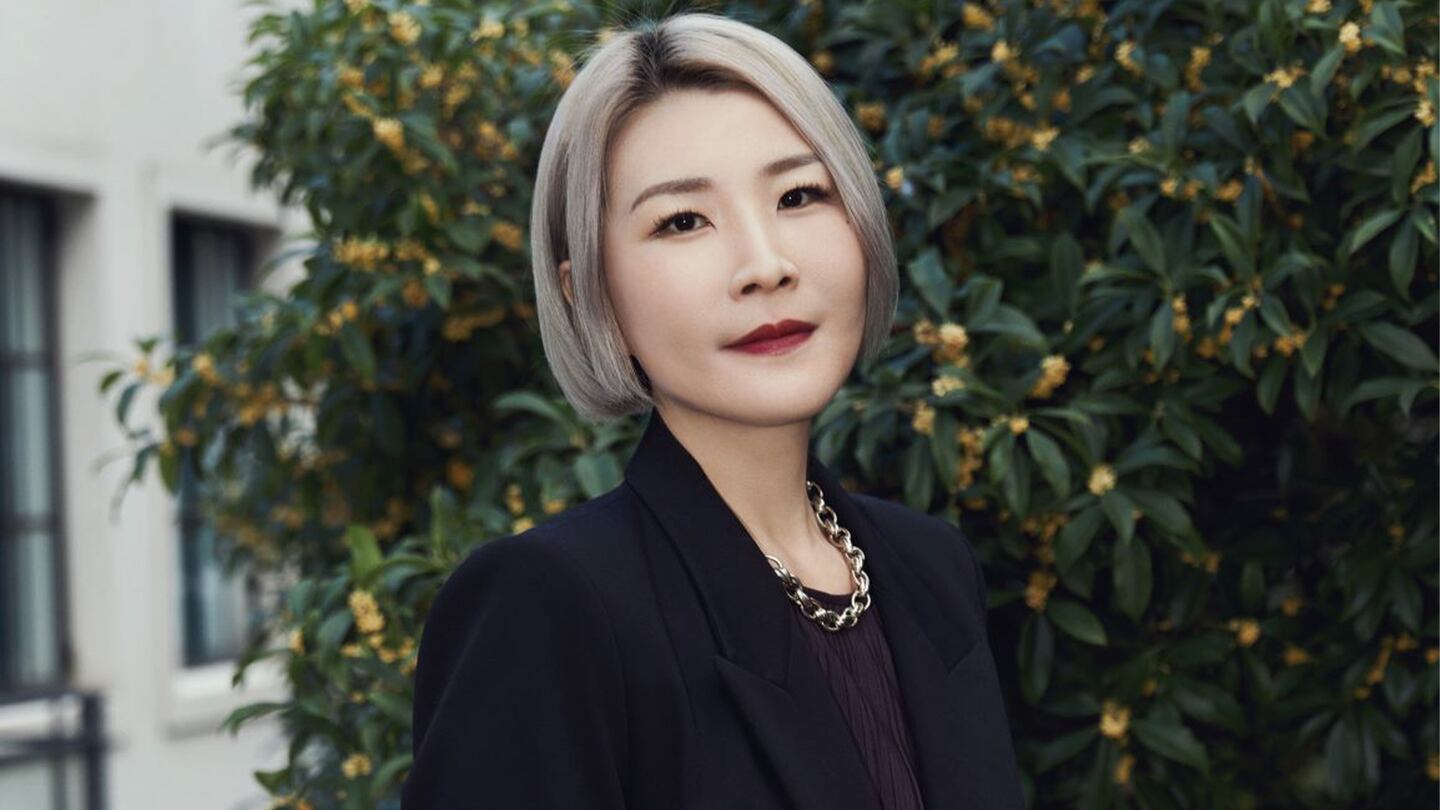
Few brands are strangers to the retail empire that is Alibaba. The company’s meteoric rise has mostly mirrored that of the Chinese economy, thanks to sprawling e-commerce platform Tmall and livestreaming hub Taobao. Though competitors do pose a threat to Alibaba and arch-rival JD.com, most fashion players eager to double down on digital channels after the onset of the pandemic have decided to link arms with one of the two giants dominating the China market.
For late arrivals to Alibaba like Gucci and Bulgari, the main attraction to join the hundreds of other brands sold on the company’s Tmall and Luxury Pavilion platforms was almost certainly its staggering reach. In the early years, another draw was the portfolio of complementary services available to brands in the ecosystem built by the group’s visionary founder Jack Ma, and the influence of powerful sector-specific deputies such as Jessica Liu and Mike Hu. But the stability of the group’s leadership team was soon shattered by a wave of high-profile exits, leaving a void which made brand partners uneasy.
After Ma stepped down as chairman in 2019, Liu left Tmall for Alibaba Group’s Southeast Asian platform Lazada and Hu appears to have stepped back from managing relationships with luxury partners after local media outlets alleged he was involved in a legal controversy. Alibaba did not respond to a request for comment on Hu’s status. Now, under chief executive Daniel Zhang, a new group of managers is tasked with steering the behemoth through China’s strict zero-Covid policies and increasingly worrying economic headwinds.
The ongoing management reshuffle has placed company veteran Trudy Dai at the head of Alibaba’s domestic e-commerce business and fashion insider Janet Wang at the helm of Tmall’s luxury division. Meanwhile, Alibaba’s international operation has Lynn Dong fronting its import arm, Mei Chen driving fashion and luxury growth from Europe and the US, and James Dong overseeing Lazada as its newly appointed chief executive.
ADVERTISEMENT
These leaders — and indeed their counterparts at competing e-tailers in China — face a litany of challenges. Weakening consumer sentiment on the back of recent lockdowns and Beijing’s strict zero-Covid policy culminated in a sector-wide slowdown of sales growth during last month’s 618 online shopping festival and the worsening of supply chain disruptions.
With shoppers cautious about the wider economy and the possibility of the resumption of Covid related restrictions, China’s recovery route has clearly diverged from 2020′s revenge spending-fuelled rebound. In May, Alibaba’s fourth quarter results saw revenue and profit exceed market expectations as users in cities like Shanghai turned to e-tailers during the extended lockdowns but the group’s market cap has plummeted from around $800 billion in autumn 2020 to around $316 billion at the time of writing.
Online retailers are also facing a longer-term deceleration trend. The turnover growth rate for China’s e-commerce sector over the next five years is expected to come up to a mere third of the figure from the last five years, according to the government’s 14th five-year plan for e-commerce published in October, which cites the maturation of the sector as one of several contributing factors.
Given such an outlook, it’s little wonder that the wave of layoffs in the sector that began last year is expected to continue. On the back of news in April that social commerce competitor Xiaohongshu cut its staff numbers, local media outlets reported that JD.com and Tencent started doing the same and that Alibaba planned on cutting 80,000 jobs, which, if true, would amount to around 30 percent of its staff. Though the company called the reports exaggerated, it did not deny rumours around restructuring.
Alibaba’s new leadership team will also need to navigate regulatory pressures, which since 2020 have been felt by the tech industry at large but by Alibaba especially. In April, the government announced it would ease up on tech firms, but company leaders remain hyper-vigilant as some suspect it is merely a temporary reprieve.
Amid all this uncertainty, Alibaba’s fashion brand partners find themselves nurturing relationships with relatively unfamiliar faces. To revitalise sales and update local e-commerce playbooks, brand managers looking to double down on the China market at this time of great change would be wise to get better acquainted with new recruits and key veterans alike to better understand their respective visions for the departments they lead.
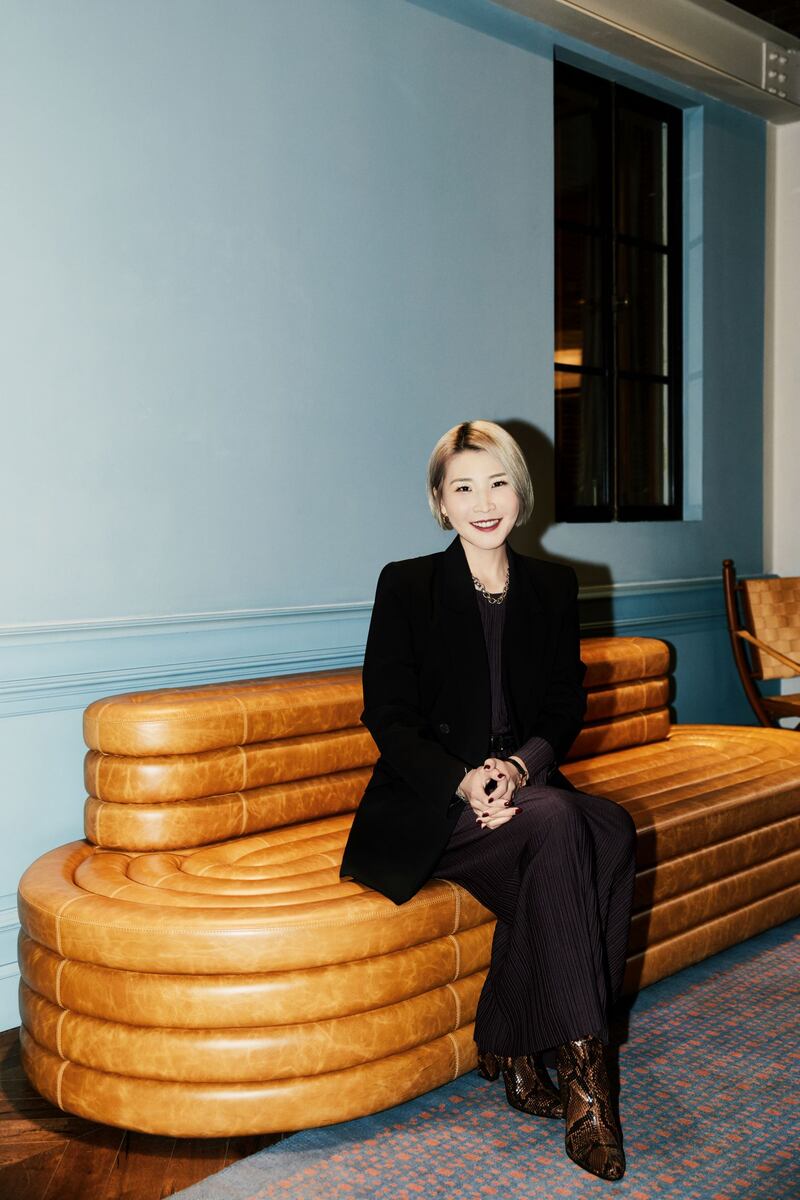
Janet Wang, Vice President of B2C Retail and General Manager of Tmall Luxury Division
Though she was one of Tmall’s first powerbrokers, Janet Wang worked elsewhere until her eventual return to Alibaba last January.
ADVERTISEMENT
Before joining Tmall in 2010 as the head of international business development (where she helped grow the platform’s credibility and client list to include the likes of Nike and Burberry), Wang obtained a masters in publishing at New York University and covered fashion and luxury for the likes of China Times Weekly and Vogue China. She left Alibaba years ago to serve as the general manager of Zara’s digital offering in the Asia Pacific region before returning to lead Tmall’s luxury division in 2021.
Reporting to Alvin Liu, president of Alibaba B2C Retail, Wang is in charge of growing the company’s luxury business and helping brands on Tmall’s Luxury Pavilion thrive in the market. Much of this comes down to building customised and immersive digital experiences: currently, she’s looking ahead to the upcoming Qixi Festival, when the team will introduce livestreamed customer service and personalised gifting, while longer-term projects include expanding Tmall’s offerings in the metaverse.
“With the recent lockdowns in China, we saw that consumers were really searching for home furnishings and items that kept their value such as jewellery or watches,” Wang wrote in an email. “[But] we don’t see an e-commerce challenge for luxury brands going forward. In fact, quite the opposite.”
Trudy Dai, President of Core Domestic E-commerce, Alibaba Group
One of this year’s most notable appointments has been that of Trudy Dai, who took over from chairman and CEO Daniel Zhang as the head of Alibaba’s core e-commerce unit during another management reshuffle that began in December 2021. The role encompasses Alibaba’s ‘Greater Taobao’ unit (Taobao, Tmall and Alimama, the group’s digital marketing platform); B2C retail (Tmall Global, Tmall Supermarket, and Tmall Luxury); and marketplaces including Taocaicai, which targets shoppers in rural areas, Taobao Deals and wholesale platform 1688.
During her previous stints at the group, Dai’s expertise saw Taocaicai and Taobao Deals sharpen their focus on lower-tier Chinese cities, which are becoming an increasingly important source of growth for luxury, fashion and beauty brands alike. By 2030, Morgan Stanley forecasts consumption in smaller regional hubs will triple 2017 levels to hit $6.9 trillion by 2030, thanks in part to lower living costs.
One of Alibaba’s 18 founding members, Dai has a BA in engineering from the Hangzhou Institute of Electrical Engineering and has occupied roles from Alibaba’s chief customer officer and president of Alibaba’s industrial e-commerce unit to senior vice president of HR and administration for Taobao and Alibaba.com. Media outlets such as KrAsia have speculated that the Alibaba veteran will eventually succeed Zhang as group CEO.

Lynn Dong, General Manager of Tmall Global
ADVERTISEMENT
A founding member of Alibaba’s B2C cross-border e-commerce platform Tmall Global, Dong has overseen business units including Tmall Overseas Fulfillment. She studied at the University of Manchester and worked in the legal sector before heading global retail cooperation at AliPay.
Dong has over a decade of experience in cross-border e-commerce. While heading Tmall Global’s local business in 2018, she founded Import Overseas Fulfilment, a business solution helping brands from categories including fashion and beauty tap into overseas warehouses for direct fulfilment to Chinese customers — and therefore test and fine-tune products before formally setting up shop in the market.
As Beijing’s zero-Covid policy continues to prevent Chinese consumers from travelling abroad to shop, Alibaba’s cross-border business (and therefore Dong) will prove crucial to brands looking for an entry or a way to double down on online channels. The group has already announced a number of services and platforms in the pipeline, including a solution that will cover pre-sale, sale and post-sale concerns for all overseas merchants.
This could prove especially useful for niche brands in emerging categories, such as male grooming, perfume and interest-based departments like skateboarding merchandise, all of which Dong says stood out during last month’s 618 online shopping festival.

Mei Chen, Head of Fashion and Luxury for UK, US, Nordics and Iberia
A name to know at Alibaba since she joined the company in 2016, London-based Chen works to help European brands grow their fashion and luxury businesses in the Chinese market. A Google alumna, Chen holds a BA in Business Management and Finance from Carlos III University in Madrid and studied business at HEC Paris. When she’s not helping global brands refine their China strategies, Chen advises start-ups on digitisation and monetisation.
Chen’s expertise ranges from brand partnerships to livestreaming; she’s spoken on several occasions about the importance of linking online activations to physical storefronts through technologies like AR, and how brands can make the most of shopping extravaganzas like Singles’ Day without overly relying on promotions to boost sales.
THE LATEST NEWS FROM CHINA
时尚与美容
FASHION & BEAUTY
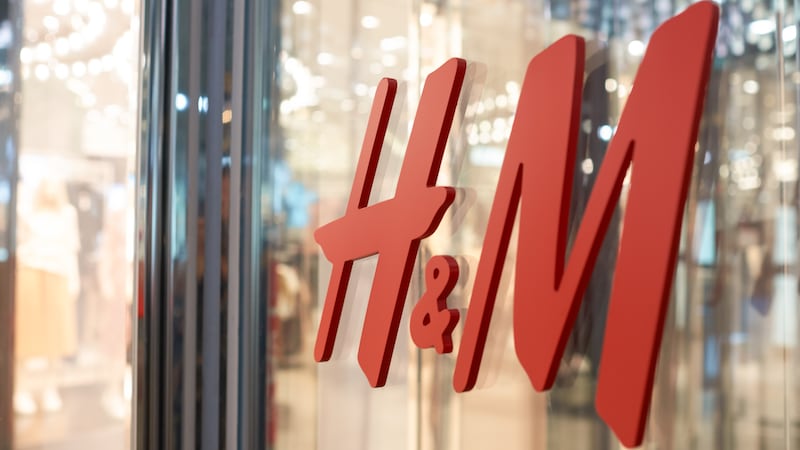
Following Lockdowns and Backlash, H&M Closes Shanghai Flagship
The Swedish fast-fashion brand’s three-storey Shanghai flagship store — its first in the country — has shuttered. The news comes as retail sales slump in the wake of a months-long city-wide lockdown, as well as the prolonged backlash against H&M and other companies that last year refused to use cotton from Xinjiang on the back of reports of forced labour in the region. Unlike some of the other brands caught up in the controversy, H&M remains absent from e-commerce destinations like Tmall and JD.com. The Shanghai flagship store opened in 2007 when the company entered the China market and was followed by over 500 other outlets, which the brand said were still operating in early 2021. According to the H&M website, only 376 (including the Shanghai flagship) now remain. (Reuters)
Shein an ‘Increasing Threat to US Speciality Retailers’, Says UBS
China’s ultra-fast fashion player is a “major and increasing threat” to retailers including American Eagle, Abercrombie & Fitch, Urban Outfitters, Victoria’s Secret, and The Gap, as well as department stores and off-price retailers, UBS analysts warned after a recent survey named it the “most downloaded” and “most-searched-for retailer” in the country. According to the survey of 7,500 shoppers around the world by the UBS Evidence Lab’s Global App Monitor, the platform’s average audience is young, female and lower-income, and are largely shopping at Shein due to its affordable pricing and trendy designs. Citing inflation, market sentiment and slowing sales, the analysts say its rival speciality retailers’ stock prices “will remain under pressure,” with Shein representing “another underappreciated headwind negatively impacting earnings.” (Yahoo Finance)
Another K-beauty Brand Reduces Its Physical Presence in China
Following Amorepacific-owned Innisfree and Etude House, influencer-powered Korean make-up brand 3CE Stylenanda is the latest to close Chinese stores as competition in the country’s beauty space intensifies. The company shuttered its presence in Beijing’s Sanlitun area on June 18, but still operates two stores directly in the mainland. Founded in Seoul, the now 13-year-old brand was a spin-off from an eponymous fashion label. It broke into the Chinese market in 2019 a year after it was acquired by L’Oréal and was among the K-beauty brands to gain favour among Gen-Z and Millennial beauty shoppers for its eyeshadows and liquid lipsticks. In fact, during Singles’ Day 2021 it posted over $15 million in sales, ranking it third in sales among colour cosmetics players and hot on the heels of Saint Laurent Beauty and Estée Lauder. It remains unclear whether the brand will focus on its e-commerce business or exit the market altogether, but local competitors and recent lockdowns have likely influenced its decision. (Jing Daily)
Louis Vuitton Names Boy Band TNT Ambassadors
The French luxury brand’s new Chinese ambassadors are the seven members of TNT, also known as Teens in Times, it announced on June 22. A campaign video shows Ma Jiaqi, Ding Chengxin, Song Yaxuan, Liu Yaowen, Zhang Zhenyuan, Yan Haoxiang and He Junlin in Louis Vuitton before the brand’s spring 2023 menswear show, which was a tribute to Virgil Abloh. TNT was formed by Time Fengjun Entertainment, which is also responsible for pop group TF Boys — a name fashion and beauty brands should be familiar with, given its members’ deals with the likes of Lancôme, Bottega Veneta and L’Oréal. The news marks Louis Vuitton’s first men’s ambassadors since it ended its contract with former boy band member Kris Wu, who was recently tried in Beijing for charges including rape.
科技与供应链
TECH & SUPPLY CHAIN
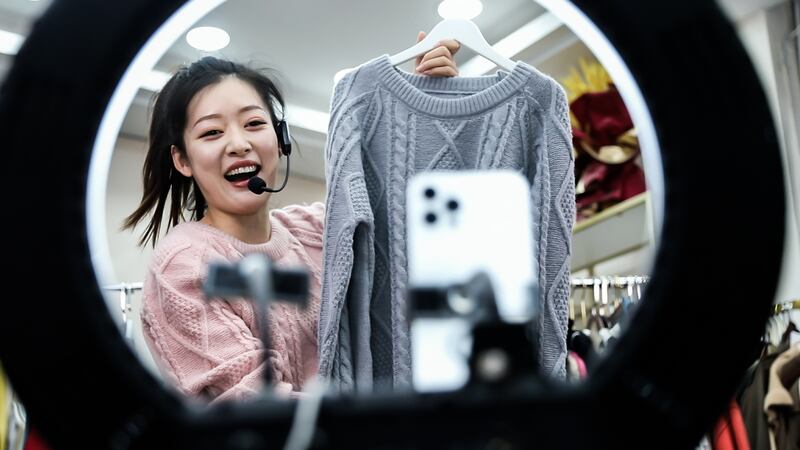
Authorities Tighten Livestream Rules by Banning Over 30 Behaviours
In China’s latest move to rein in its booming livestreaming industry, media regulators have released new rules requiring streamers to abide by standards similar to those applying to traditional media hosts. Published jointly by China’s National Radio and Television Administration and the Ministry of Culture and Tourism, the 18 guidelines urge hosts to promote correct political values; avoid creating content that is clickbait, promotes fandoms or an extravagant lifestyle; “hyping up” sensitive issues; and avoid creating professional content around the law, medical health, education, and finance without obtaining approval from platforms, to name a few. The guidelines also require streaming platforms to take responsibility for enforcement, including permanently blacklisting users that fall foul of the rules. (SCMP)
Linking Opens Up Between WeChat Moments Ads and Alibaba’s Tmall
After years of most platforms keeping users in their apps by preventing inter-app links, an ongoing campaign by Chinese authorities to tear down tech’s ‘walled gardens’ is making progress. As reported in local media outlet Ebrun, advertisements in WeChat Moments (a function similar to Instagram Stories) can now link directly to Alibaba-owned e-commerce marketplace Tmall. According to Ebrun’s source, some brands already tapped Moments traffic for Tmall sales during this month’s 618 online shopping festival. Currently, the source adds, this only works if ads are put through Alibaba’s marketing platform Alimama Uni Desk, which is still going through testing. Nonetheless, it’s big news for brands that for years have paid to engage customers across a much larger number of touchpoints and hints at a future where data tracking a more comprehensive customer journey could become available to marketers in the mainland. (Pandaily)
Fashion Tech Firm Linctex Digital Raises $100 Million
The Hangzhou-based firm best known for its virtual try-on technology for fashion e-commerce has raised $100 million, it announced on WeChat. Led by Hillhouse Capital and CDH Investments, the funds will go towards global expansion (it already runs offices in Copenhagen, Amsterdam, New York and Milan) and continuing to invest into the digital fashion space, it said. Founded in 2015, Linctex is also known as Style3D; alongside virtual try-on and 3D body scanning technologies, it also offers big data solutions for brands and manufacturers to use throughout the design and production process. It’s also active in the metaverse and makes digital fabric designed to move and look as realistic as the real thing. According to founder and CEO Liu Chen, the goal is to integrate the process of designing, making and selling physical clothes with that of digital collectables. (Reuters)
消费与零售
CONSUMER & RETAIL

Shanghai’s Boutiques Are Struggling to Clear Lockdown Stock
Heaps of unsold spring styles are evidence of dampened demand and growing consumer caution almost a month after the city emerged from an extended lockdown. When restrictions were in place through April and May, products were held up in physical stores and containers backlogged at port due to supply chain disruptions (including inventory destined for other cities, as around a fifth of Chinese imports pass through Shanghai). When reopening began, so did sales, with the likes of Lululemon and Victoria’s Secret luring shoppers with markdowns. But both online and offline retailers are stuck with products they can’t sell; many are turning to reductions, ordering less in Q4, and warehousing inventory they’ll try to clear during Singles’ Day promotions. (Reuters)
Growth Slowed at This Year’s 618 Festival
All eyes were on the mid-year shopping event, which mattered more than ever this year as brands sought to make up for slowing sales by discounting on apps like Farfetch, JD.com, Tmall and Douyin. According to market analytics firm Syntun, platforms brought in 695.9 billion yuan in sales during the period, a 20.3 percent increase year-on-year and its slowest growth rate since 2020. JD.com, which first launched the event in 2010, posted 379.3 billion yuan in sales — a 10.3 percent boost from a year ago but a slowdown following 2021′s 27.7 percent surge. A rare bright spot, JD.com’s on-demand delivery platform JD Daojia saw its business boom and recorded a 77 percent rise in revenue. But on the whole, the numbers confirm fears that a V-shaped spending rebound aren’t likely to be buoying sales in the mainland anytime soon. (Technode)
政治,经济与社会
POLITICS, ECONOMY, SOCIETY
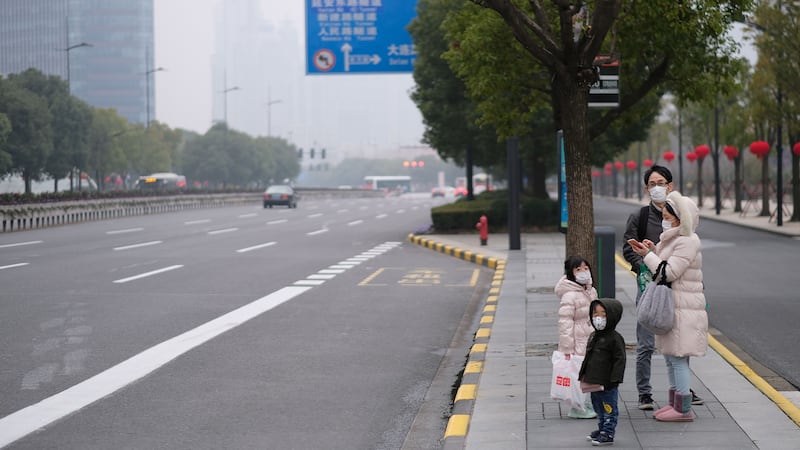
China Cuts Travel Quarantine in Biggest Zero-Covid Shift Yet
Beijing has halved mandatory hotel quarantine for inbound travellers, meaning visitors will only need to spend seven (rather than 14) days in a quarantine facility, and monitor their health at home for three days. The move is the government’s most significant yet, following many months of imposing a strict zero-Covid policy as other countries learned to live with the virus. In June, Beijing and Shanghai announced no new locally-transmitted Covid infections for the first time since February. But the country remains committed to its policy and prioritising the protection of residents at the cost of economic growth, President Xi Jinping said during a visit to Wuhan. Indeed, on June 27 a notice posted by Cai Qi, the Beijing secretary of the Chinese Communist Party, sparked an outcry by signalling that the policy — including mass mandatory testing and travel restrictions — could remain in place for five years. “In the next five years, Beijing will unremittingly grasp the normalisation of epidemic prevention and control,” the notice read, alongside a commitment to emergency response systems designed for “isolation, management and control… as soon as [transmissions] appear.” (Bloomberg)
President Xi Jinping Attends Hong Kong’s Handover Anniversary
Over the course of a two-day trip, Xi attended events celebrating the 25th anniversary of Chinese rule, marking his first trip outside the mainland since the pandemic broke out in 2020. This included the inauguration ceremony for the sixth government of the Special Administrative Region. During a short speech, Xi said that Hong Kong had “risen from the ashes” — presumably referencing the pro-democracy protests and Covid-19 — highlighting the benefits of the “one country, two systems” structure. During the swearing-in ceremony for Hong Kong’s new chief executive, John Lee, Xi added that as the territory heads “from chaos to order,” power “must be administered only by patriots.” In the days leading up to July 1, at least 13 local journalists were denied permission to cover the proceedings. (SCMP)
China Decoded wants to hear from you. Send tips, suggestions, complaints and compliments to robb.young@businessoffashion.com.
With consumers tightening their belts in China, the battle between global fast fashion brands and local high street giants has intensified.
Investors are bracing for a steep slowdown in luxury sales when luxury companies report their first quarter results, reflecting lacklustre Chinese demand.
The French beauty giant’s two latest deals are part of a wider M&A push by global players to capture a larger slice of the China market, targeting buzzy high-end brands that offer products with distinctive Chinese elements.
Post-Covid spend by US tourists in Europe has surged past 2019 levels. Chinese travellers, by contrast, have largely favoured domestic and regional destinations like Hong Kong, Singapore and Japan.